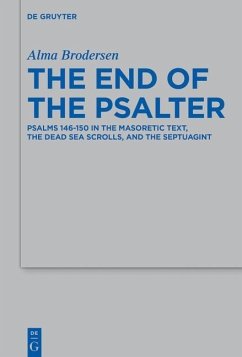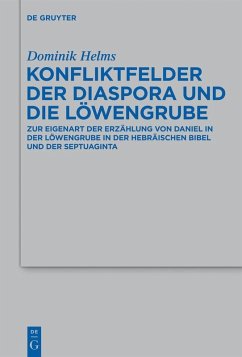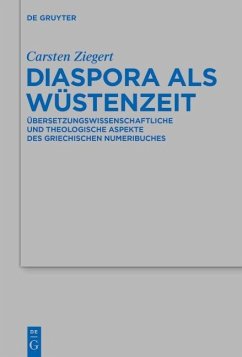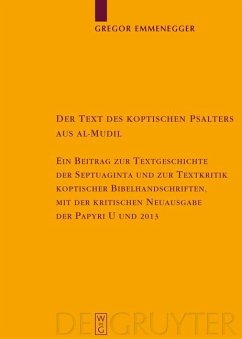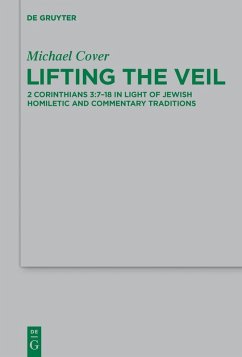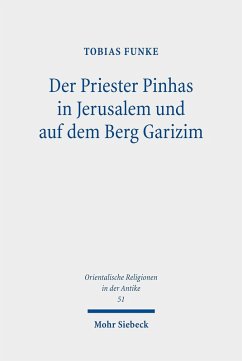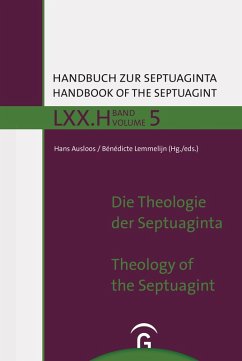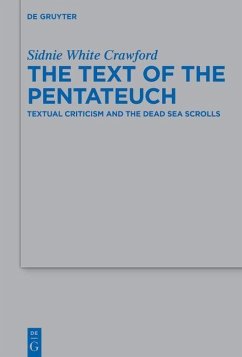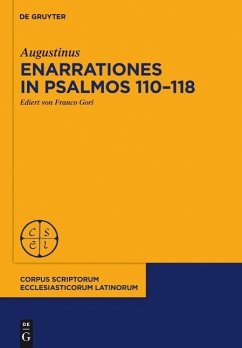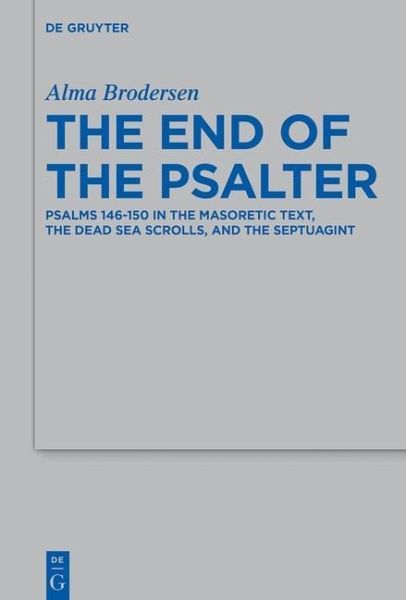
The End of the Psalter (eBook, PDF)
Psalms 146-150 in the Masoretic Text, the Dead Sea Scrolls, and the Septuagint
Versandkostenfrei!
Sofort per Download lieferbar
97,95 €
inkl. MwSt.
Weitere Ausgaben:

PAYBACK Punkte
49 °P sammeln!
Psalms 146-150, sometimes called "Final Hallel" or "Minor Hallel", are often argued to have been written as a literary end of the Psalter. However, if sources other than the Hebrew Masoretic Text are taken into account, such an original unit of Psalms 146-150 has to be questioned."The End of the Psalter" presents new interpretations of Psalms 146-150 based on the oldest extant evidence: the Hebrew Masoretic Text, the Hebrew Dead Sea Scrolls, and the Greek Septuagint. Each Psalm is analysed separately in all three sources, complete with a translation and detailed comments on form, intertextuali...
Psalms 146-150, sometimes called "Final Hallel" or "Minor Hallel", are often argued to have been written as a literary end of the Psalter. However, if sources other than the Hebrew Masoretic Text are taken into account, such an original unit of Psalms 146-150 has to be questioned.
"The End of the Psalter" presents new interpretations of Psalms 146-150 based on the oldest extant evidence: the Hebrew Masoretic Text, the Hebrew Dead Sea Scrolls, and the Greek Septuagint. Each Psalm is analysed separately in all three sources, complete with a translation and detailed comments on form, intertextuality, content, genre, and date. Comparisons of the individual Psalms and their intertextual references in the ancient sources highlight substantial differences between the transmitted texts.
The book concludes that Psalms 146-150 were at first separate texts which only in the Masoretic Text form the end of the Psalter. It thus stresses the importance of Psalms Exegesis before Psalter Exegesis, and argues for the inclusion of ancient sources beyond to the Masoretic Text to further our understanding of the Psalms.
"The End of the Psalter" presents new interpretations of Psalms 146-150 based on the oldest extant evidence: the Hebrew Masoretic Text, the Hebrew Dead Sea Scrolls, and the Greek Septuagint. Each Psalm is analysed separately in all three sources, complete with a translation and detailed comments on form, intertextuality, content, genre, and date. Comparisons of the individual Psalms and their intertextual references in the ancient sources highlight substantial differences between the transmitted texts.
The book concludes that Psalms 146-150 were at first separate texts which only in the Masoretic Text form the end of the Psalter. It thus stresses the importance of Psalms Exegesis before Psalter Exegesis, and argues for the inclusion of ancient sources beyond to the Masoretic Text to further our understanding of the Psalms.
Dieser Download kann aus rechtlichen Gründen nur mit Rechnungsadresse in A, B, BG, CY, CZ, D, DK, EW, E, FIN, F, GR, HR, H, IRL, I, LT, L, LR, M, NL, PL, P, R, S, SLO, SK ausgeliefert werden.




